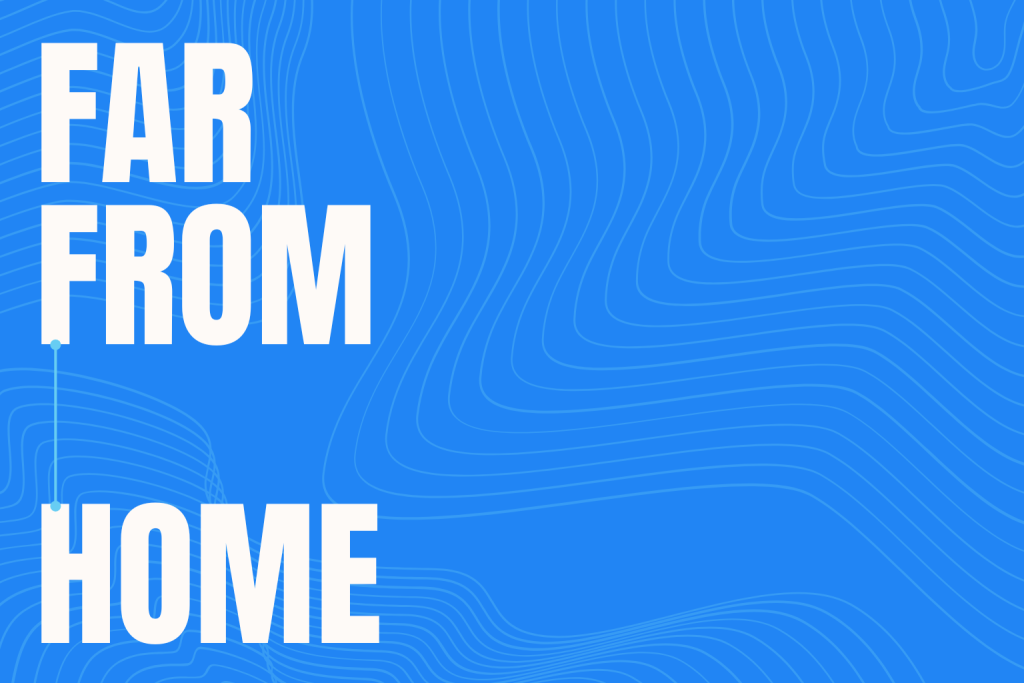
Far From Home: Life as an LGBT Migrant in Ireland

Overview
Far from Home: Life as an LGBT Migrant in Ireland examines specific the experiences and needs of LGBT migrants living in Ireland.
The research, conducted by leading academics Dr Chris Noone (NUIG), Dr Brian Keogh (TCD) and Dr Conor Buggy (UCD), was designed in collaboration with a diverse group of people who have migrated to Ireland and identify as LGBT. An online survey conducted through GCN (Gay Community News) resulted in 231 respondents accounting for 48 different countries with Brazil, the United States, the United Kingdom and Germany the most commonly represented.
A survey with a mix of open and closed questions was distributed online and 231 people contributed to this project by completing it. A wide range of nationalities were represented, with participants from 48 different countries. The most commonly represented countries were Brazil, the US, Poland, the UK and Germany. Twelve participants were living in direct provision centres at the time. Roughly 90% of participants identified as cisgender (205), with 10% identifying as transgender (20).
They shared their experiences of coming to Ireland, making social connections, stigma, integration and acceptance. The participants also discussed their health, the level of opportunity they felt they had in Ireland, and whether they planned to stay long-term.
The report made a number of recommendations to policy makers including a need to facilitate greater access to mental health services for LGBT migrants; LGBT cultural competency training for all public service employees; an end to the system of Direct Provision and a review of the asylum application process, specifically in the context of how applications relating to sexual orientation and gender are handled. Furthermore, calls were made for the introduction of effective hate crime legislation.
"This research clearly shows that while many immigrants who are members of our LGBT community find Ireland a welcoming place to come for work, study and greater acceptance of LGBT people, many experience stress from multiple sources that most of us never have to deal with. This includes racism in public spaces, and to a lesser extent, LGBT spaces, homophobia from Irish people and their fellow migrants, and social isolation. These experiences may account for the worryingly negative reports regarding health and mental health in this study."
– Dr Chris Noone
Key Findings
48% of respondents were from EU countries, the majority coming from the UK, Poland, France, Italy and Spain. Over a fifth were from outside the EU, mainly Brazil. The majority of respondents have lived here for five years or more.
The most common reasons for migrants coming to Ireland were to find work, to study and to experience greater acceptance as a member of the LGBT community.
For many, seeking greater acceptance also meant escaping serious risks to their safety and lives.
Almost three-quarters of those surveyed rated their physical health negatively.
Over half of those surveyed (57%) rated their mental health negatively.
Many LGBT migrants are living in rural Ireland where there are currently no LGBT community resources available to them.
66% of participants indicated they have felt treated with less respect in public spaces because of their race, ethnicity or migrant status.
Participants felt the system of processing LGBT asylum seekers needed to be radically overhauled.
Calls were also made for improved access to healthcare and housing, and better channels of information about LGBT services.
There were concerns expressed about the lack of secularisation in Irish society and the quality of sex education available in schools.
"LGBT people living in Direct Provision are the most likely to encounter such stressful experiences and therefore need the most support. Actions need to be taken to protect members of the LGBT community who are living in Direct Provision from isolation and homophobia. These include guaranteeing that LGBT people are accommodated in areas where they can access LGBT-specific services, that they are housed in accordance with their gender identity and that they are kept safe."
– Dr Chris Noone


 Download Resource
Download Resource